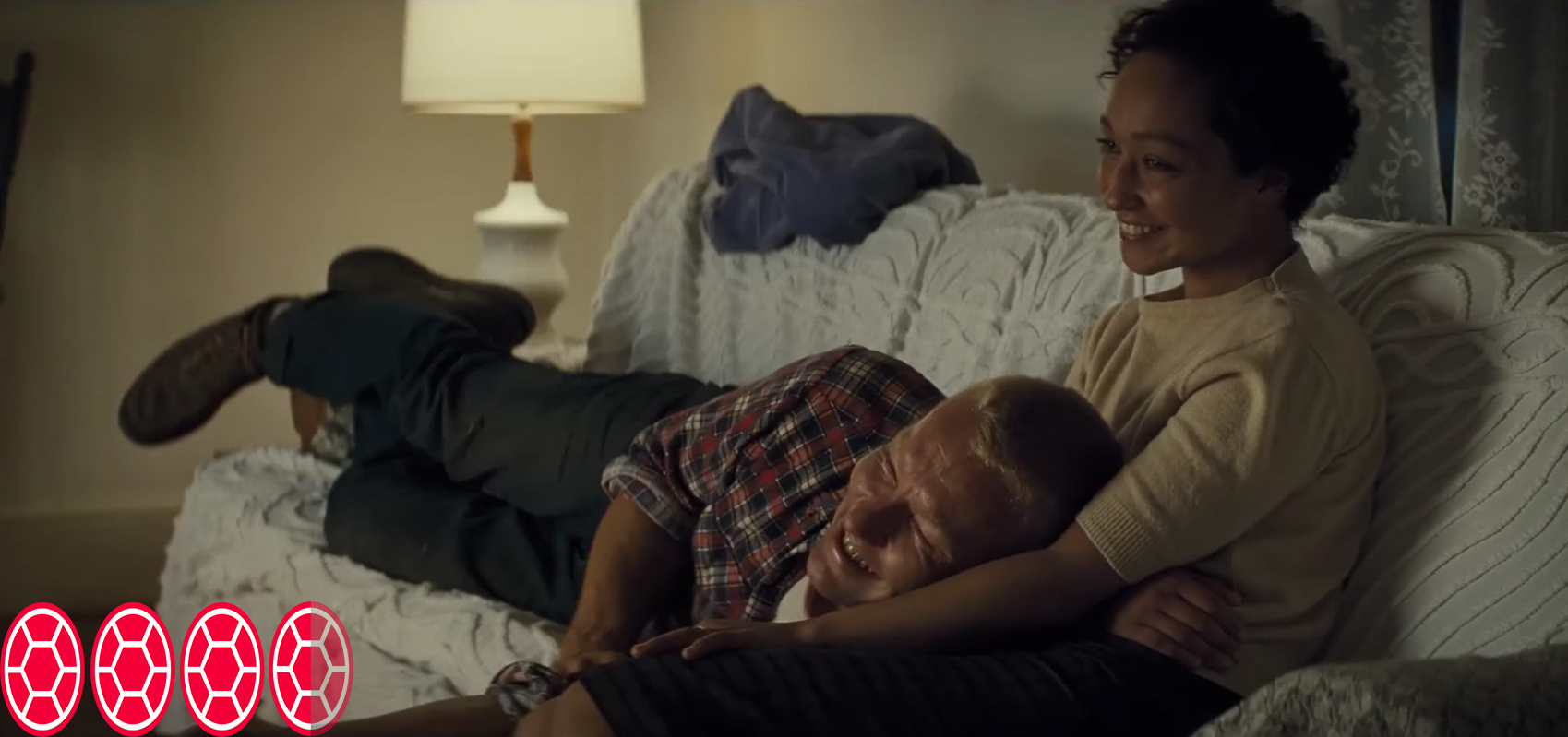It’s dark. A man and woman are shown sitting on the edge of a wooden porch, fingers entwined as their feet dangle inches from the dirt covered earth. The air surrounding them is alive with the sounds of night, crickets, cicadas and various other night creatures chirping away loudly. The tension between the couple is palpable, the woman looking down at her lap with an expression of worry and a slight bit of fear. Then, with a stroke of courage and a quite, clear voice says:
“I’m pregnant.”
Now given the gravity of such a statement, there are two emotional reactions that one might expect from the man — either joy or worry. It seems very rare that the two ever really overlap; after all, the baby’s either wanted or it’s not. But in this specific instance, both emotions clearly play across his face as he embraces his partner. Why? Because they live in the 1950’s, and he is a white man while she is a black woman.
This is the opening scene to Loving, the historical drama that tells the remarkable story behind the Loving v. Virginia Supreme Court case. In 1958, Richard Loving (Joel Edgerton) and Mildred Loving (Ruth Negga) were arrested in Virginia for being unlawfully married. Since interracial marriages were illegal in Virginia during this time, they were given two options: either each of them had to spend a year in prison, or they must leave the state for no less than 25 years. The story that follows would eventually lead to one of the biggest civil rights cases in American history, yet for the Loving’s, all they wanted was the freedom to raise their family.
Visually, Loving is an absolute masterpiece. Each scene is wonderfully constructed, with sweeping footage of the Virginian countryside or the cramped streets of Washington strategically added in to create a perfectly realistic setting. The realism is really what makes the whole production shine; there are no exaggerations or misrepresented moments, leaving absolutely no doubt of the credibility of this constructed reality. Every shot holds an element of starkness, fully allowing the gravity of this moment in America history to sink in with the audience.
In addition to the pure visual aspects of the movie, both Edgerton and Negga absolutely outdid themselves in their respective roles. Edgerton’s portrayal of Richard Loving was raw and captivating, using exquisite body language and facial expressions to bring the quiet, thoughtful Virginian to life. Meanwhile Negga seemed to mold into Mildred Loving in body and spirit, delivering such a powerful performance that she became the centerpiece of almost every scene. Somehow she managed to consistently appear both timid and courageous at the same time, manifesting herself into the type of woman that you rarely get to see in film.
The one downside I could find in this movie isn’t really a downside at all, but simply a change of perspective. There are multiple parts throughout the film in which the plot fails to really grab the audience’s attention. While normally I would consider this a problem, in this case I find it hard to criticize because, just like the visual shots, it’s so realistic. Writer and director Jeff Nichols wanted to portray this couple’s story as accurately as he could, without adornments or any sort of major fabrications. With that comes the expectation that a lot of the movie is going to be spent waiting for plot progressions, because that’s exactly what the Loving’s had to do. They weren’t extremely involved in their case—in fact, they didn’t even go to the Supreme Court when their case was heard. Their goal wasn’t to achieve any sort of fame or public recognition. All they wanted to do was raise their family in the place they called home. So if there are moments that seem to drag on, it’s because that’s most likely exactly what the Lovings were experiencing. For me, sitting through and experiencing that slight lull was not only humbling, but completely eye-opening when put into the context of the story itself.
Loving succeeds in delivering a beautiful exploration of the endless meanings of love, race and family. No matter if you’re a history junkie, a romantic or simply someone who’s looking for something new, this movie isn’t one that you want to miss out on.
3.5/4 Shells



